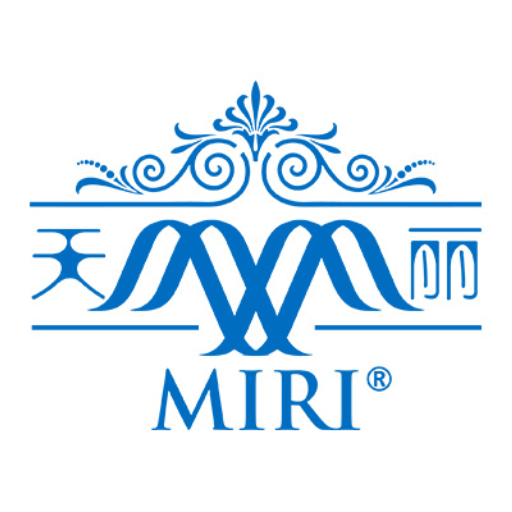Understanding Menopause: Embracing Life’s Natural Transition
Menopause is a natural biological process that marks the end of a woman’s reproductive years. While it’s a universal experience, many women find themselves unprepared for the physical and emotional changes that accompany this transition. This comprehensive guide aims to demystify menopause, explore its symptoms, and provide practical strategies for navigating this life stage with confidence and wellness.
What is Menopause?
Menopause typically occurs between the ages of 45 and 55, when a woman has gone 12 consecutive months without a menstrual period. This transition is characterized by a significant decline in estrogen and progesterone production, which regulate the menstrual cycle and influence various bodily functions. While menopause itself is a single point in time, the process leading up to it—called perimenopause—can last for several years and brings gradual hormonal changes.
For a deeper understanding of this natural transition, you might find our article Understanding Menopause: Embracing Change with Confidence particularly helpful.
Common Symptoms of Menopause
The hormonal shifts during menopause can manifest in numerous ways, affecting nearly every system in the body. While experiences vary greatly among women, common symptoms include:
Physical symptoms often dominate the menopausal experience. Hot flashes and night sweats are perhaps the most well-known, affecting approximately 75% of women. These sudden sensations of heat can be accompanied by flushing and sweating, particularly affecting the face, neck, and chest. Other physical manifestations include vaginal dryness, sleep disturbances, changes in skin texture, and shifts in body composition as metabolism slows.
Emotional and cognitive changes are equally significant. Many women report mood swings, increased irritability, or feelings of sadness during this transition. Cognitive changes, sometimes called “brain fog,” may manifest as difficulties with concentration, memory lapses, or finding the right words. These changes can be frustrating but are typically temporary.
If you’re experiencing these symptoms, our detailed guide Menopause: A Comprehensive Guide to Symptoms, Relief, and Embracing Change offers additional insights and coping strategies.
Managing Menopause Naturally
While medical interventions exist, many women prefer to manage menopause symptoms through natural approaches. Lifestyle modifications can make a significant difference in symptom severity and overall quality of life.
Dietary adjustments play a crucial role. Incorporating phytoestrogens—plant compounds that mimic estrogen—can help balance hormones. Foods rich in phytoestrogens include soy products, flaxseeds, chickpeas, and lentils. Additionally, a diet rich in calcium and vitamin D supports bone health, which becomes particularly important as estrogen levels decline. Omega-3 fatty acids found in fish, walnuts, and flaxseeds can help reduce inflammation and may alleviate some menopausal symptoms.
Regular physical activity offers multiple benefits during menopause. Weight-bearing exercises like walking, jogging, or strength training help maintain bone density and muscle mass. Yoga and tai chi can improve flexibility, balance, and stress reduction. Even moderate exercise for 30 minutes most days can significantly reduce hot flashes and improve sleep quality.
Stress management techniques are equally valuable. Practices such as meditation, deep breathing exercises, and mindfulness can help regulate the body’s stress response, potentially reducing symptom intensity. Creating a calming bedtime routine and maintaining a consistent sleep schedule can combat insomnia, which affects many menopausal women.
For more holistic strategies, consider exploring our article Menopause Wellness: Holistic Strategies for a Balanced Transition.
Medical Options for Menopause Management
When lifestyle changes aren’t sufficient to manage symptoms, medical interventions may be appropriate. Hormone replacement therapy (HRT) remains one of the most effective treatments for severe menopausal symptoms, particularly hot flashes and vaginal dryness. However, HRT isn’t suitable for all women, and the decision to pursue this treatment should be made in consultation with a healthcare provider.
Non-hormonal options also exist. Certain antidepressants can help manage both mood symptoms and hot flashes. Gabapentin, a medication typically used for nerve pain, has shown effectiveness in reducing hot flashes. For vaginal symptoms, over-the-counter moisturizers and lubricants can provide relief, and prescription estrogen treatments specifically target vaginal atrophy.
Regular health check-ups become especially important during menopause. Bone density scans can assess osteoporosis risk, and cardiovascular health monitoring is crucial since heart disease risk increases after menopause.
Targeted Support for Menopause
In addition to lifestyle and medical approaches, targeted supplements can provide specialized support during menopause. Our Miri Feminine Essence is specifically formulated to address menopause symptoms naturally. This supplement supports hormone balance, helps alleviate common discomforts, and enhances overall female vitality during this transition.
Many women find that combining multiple approaches—lifestyle modifications, targeted supplementation, and when appropriate, medical treatments—provides the most comprehensive support during menopause. Personalized care that addresses your unique symptoms and health needs is key to navigating this transition successfully.
Embracing the Menopausal Journey
While menopause often carries negative cultural associations, it can also be viewed as a time of liberation and new beginnings. With no menstrual cycles to manage and freedom from concerns about pregnancy, many women report feeling more confident and self-assured in their later years. This transition offers an opportunity to refocus on personal goals, relationships, and well-being.
Education and community support are powerful tools for positive menopause experiences. Connecting with other women who understand this transition can normalize the experience and provide practical tips. Knowledge about what to expect reduces anxiety and empowers women to advocate for their health needs.
Remember, menopause is not a disease but a natural phase of life. With proper care, support, and self-compassion, women can navigate this transition gracefully and emerge with renewed vitality and wisdom. The journey through menopause, while challenging, ultimately leads to a new chapter of life rich with potential and possibility.
